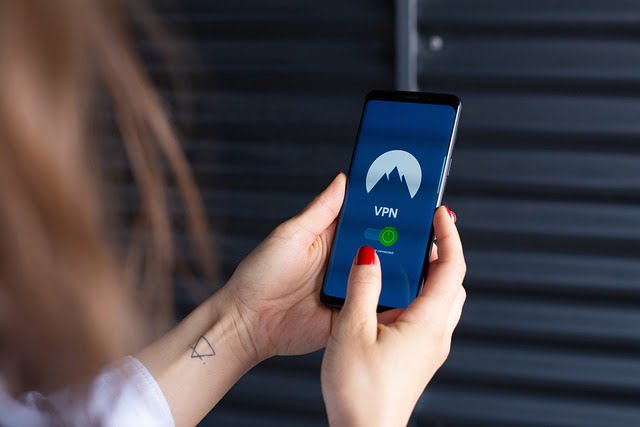Can VPNs Be Tracked by Employers?

In an increasingly digital world, Virtual Private Networks (VPNs) have become a common tool for ensuring online privacy and security. Many individuals use VPNs to protect their data from hackers, ISP tracking, and even their employers. However, the question remains: can VPNs be tracked by employers? This article explores VPN tracking by employers, examining the capabilities and limitations of VPNs in the workplace, as well as the methods employers might use to track VPN usage.
How VPNs Work
Encryption and IP Masking
- Encryption: VPNs encrypt your internet traffic, making it difficult for anyone, including your employer, to intercept and read your data.
- IP Address Masking: By routing your traffic through a VPN server, your real IP address is hidden, and you appear to be browsing from the VPN server’s location.
Secure Tunneling
A VPN creates a secure tunnel between your device and the internet. This tunnel protects your data from being accessed by unauthorized parties, including your employer’s IT department.
Employer Tracking Capabilities
Network Monitoring Tools
Employers often use network monitoring tools to keep track of employees’ internet usage. These tools can detect the use of VPN protocols by examining network traffic patterns. While the content of the traffic remains encrypted and unreadable, the use of a VPN itself can be flagged.
Deep Packet Inspection (DPI)
Deep Packet Inspection (DPI) is a more advanced method that allows employers to analyze the data being transmitted over their network in greater detail. DPI can identify VPN traffic by examining the packet headers and can sometimes distinguish between different types of VPN protocols.
VPN Blocklists
Some employers maintain blocklists of known VPN IP addresses. If you connect to a VPN server with an IP address that is on the blocklist, your connection might be blocked or flagged for further investigation.
Logging and Auditing
Employers may have logging systems in place that record metadata such as connection times, duration, and the amount of data transferred. While this metadata doesn’t reveal the actual content of your communications, it can indicate VPN usage patterns.
Legal and Policy Considerations
Acceptable Use Policies
Most companies have acceptable use policies (AUPs) that outline permissible and impermissible activities on the corporate network. Using a VPN might violate these policies, especially if it is used to bypass security measures or access restricted content.
Consent and Notification
In many jurisdictions, employers are required to inform employees if they are being monitored. However, this notification might be included in the fine print of employment contracts or IT policies, so it’s essential to be aware of your company’s policies.
Methods Employers Use to Track VPN Usage
Analyzing Network Traffic
Employers can monitor network traffic for signs of VPN usage. Unusual patterns, such as consistent traffic to a single external IP address, might indicate a VPN connection.
Detecting Encrypted Traffic
While employers cannot decrypt VPN traffic, the presence of encrypted traffic itself can be a red flag. Continuous encrypted traffic might suggest the use of a VPN or other encryption tools.
Monitoring Connection Times
If an employee consistently connects to the corporate network from the same IP address for extended periods, it could indicate the use of a VPN. Employers can use this information to investigate further.
Using Security Software
Security software, including firewalls and intrusion detection systems, can be configured to detect and block VPN traffic. Some advanced systems can even identify specific VPN protocols and block them automatically.
How to Enhance Privacy from Employer Tracking
Choose the Right VPN
- Stealth Mode: Some VPNs offer stealth mode or obfuscation features that disguise VPN traffic as regular web traffic, making it harder for employers to detect.
- Dedicated IP Addresses: Using a dedicated IP address from your VPN provider can help avoid blocklists and reduce the likelihood of detection.
Use Additional Privacy Tools
- Tor Network: Combining your VPN with the Tor network can provide an extra layer of anonymity, although this may impact connection speed.
- Secure Browsers: Use privacy-focused browsers like Brave or Firefox with additional security settings to enhance your privacy.
Regularly Update Software
Ensure your VPN software and devices are regularly updated to protect against vulnerabilities and stay ahead of potential tracking methods.
Follow Company Policies
Understanding and adhering to your company’s acceptable use policies can help you avoid unwanted attention and potential disciplinary action. If using a VPN is against company policy, it might be best to avoid it or discuss your privacy concerns with your employer.
Conclusion
While VPNs offer significant privacy and security benefits, they are not entirely immune to tracking by employers. Employers have various tools and methods at their disposal to detect VPN usage, such as network monitoring, DPI, and logging. However, by choosing a reputable VPN provider with stealth features, using additional privacy tools, and staying informed about your company’s policies, you can enhance your privacy and reduce the likelihood of being tracked by your employer.
Loading newsletter form...






